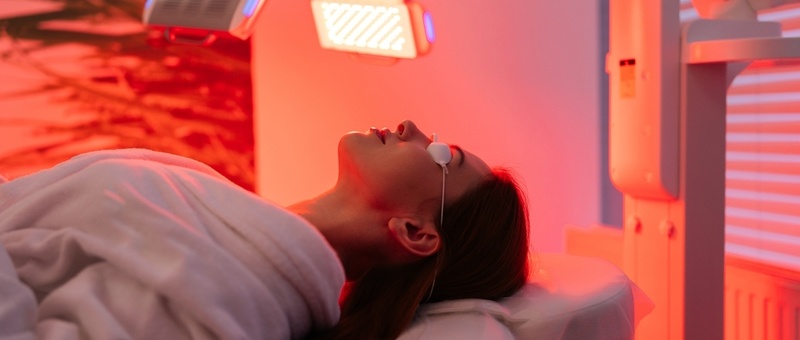
Is retail therapy actually a thing?
Peer reviewed by Dr Sarah Jarvis MBE, FRCGPLast updated by Emily Jane BashforthLast updated 24 Dec 2021
Meets Patient’s editorial guidelines
- DownloadDownload
- Share
- Language
- Discussion
The idea of retail therapy has been around for decades. Most of us have bought something at some point because we were sad and it made us feel better, or because it felt good in the moment. Shopping can provide short-term, superficial relief, due to the effect it has on our universal needs. But, is retail therapy healthy? And does it have any long-term benefits?
In this article:
Video picks for Therapy
Continue reading below
What is retail therapy?
Retail therapy is defined as: "The act of buying special things for yourself in order to feel better when you are unhappy." It often occurs during periods of depression or stress, and is normally a short-lived habit. Items purchased during these shopping sprees (such as clothes or accessories), are referred to as 'comfort buys'.
Shopping is not a substitute for actual therapy with a qualified professional, so its name is facetious, since it doesn't have any medical benefits. The phrase was first used in the 1980s in the Chicago Tribune newspaper on Christmas Eve, 1986: "We've become a nation measuring out our lives in shopping bags and nursing our psychic ills through retail therapy."
While shopping may provide short-term comfort during times of sadness, it does carry risks. Retail therapy is said to exist on a spectrum which includes shopping addiction. Where someone's lifestyle sits depends on whether shopping is used adaptively or maladaptively.
Claire Brummel is an expert in human behaviour, and she says that when we do something that feels good, it is normally because it is meeting one or more of our needs. But, rather than being a healthy approach to meeting our needs, retail therapy tends to be a coping mechanism.
"Shopping has a surface-level benefit, rather than being something that is really going to fulfil our needs. More importantly, because retail therapy does not properly fulfil our needs - it just masks or satiates it temporarily - it is very easy for the behaviour to become a habit. There is then a risk of the habit becoming a compulsion or addiction if you do not find other ways to genuinely fulfil the needs that are driving the behaviour under the surface," she says.
Some of the needs we are subconsciously seeking to meet when we are indulging in retail therapy include:
Emotional experience and expression
"Often retail therapy can be our way of feeling something we don't already feel. It's filling a void. The act of purchasing something we want might give us temporary pleasure. We might also want to feel more attractive, desirable or cool, which companies capitalise on as they use it as a marketing strategy," says Brummell.
"On the flip side, we might also use retail therapy to try to distract from or avoid emotions that we find uncomfortable. So, when we are feeling sad, frustrated, or disappointed, we might buy items to substitute those feelings with different ones by making the purchase."
She highlights that this approach to coping with our emotions can be very problematic in the long run, as it does not make those feelings go away. All it does is suppress them, sometimes causing anxiety or greater suffering when they resurface later at an inopportune time.
Value
Our perception of our personal value is what creates our feelings of self-worth and importance as a human being. Sometimes, if we are experiencing low self-worth, we can be manipulated by marketing techniques to believe making certain purchases will bolster our feelings of worthiness and make us feel better.
"This can have a particular effect on women. Relating to our emotional experience and expression, we can use retail therapy to make ourselves feel more attractive to others, or to meet certain beauty standards. In a society where women's value is often tied to how they look or how conventionally beautiful they are according to Western beauty ideals, this can lead to a subconscious pull to accumulate possessions. Women might give in to this temptation in part to 'fit in' or to feel more accepted by wider society," says Brummell.
However, any boosts of confidence or self-esteem from shopping tend to be superficial and temporary. There are much more effective ways to help us recognise our value, Brummell says, that will actually change how we feel on the inside, not just how we look on the outside. Self-worth is an internal sense of being worthy of being valued, and low self-esteem cannot be resolved by applying external distraction techniques (shopping-shaped or otherwise) and hoping it will disappear.
Personal power
Used appropriately, however, retail therapy can offer a sense of empowerment. When we are feeling out of control - perhaps when we are stressed or anxious - shopping can help us feel we have authority over some tangible aspect of our lives. There is something quite empowering about going into a shop and just being able to buy what you want, and doing this can help give us a grasp on life when we feel powerless.
"In those moments when we feel helpless to change a situation, retail therapy can help us feel that we at least have a hold on at least one concrete outcome. It can remind us that we are still able to create some pleasure for ourselves in the midst of the challenges we are facing," Brummell explains.
Love and connection
Brummell explains how shopping is a way to connect with others. When people were socialising more pre-COVID-19, it was an activity that groups of friends (particularly young women) could engage in together and bond over. It was one of the ways people's needs for love and human connection were met.
"If people don't have other interests in common or other ways to connect with their friends, retail therapy could appear to be the glue holding some relationships together," she says.
"This is why it's important to seek out deeper ways to connect with the people you spend time with. Your connection with someone shouldn't be dependent solely on a shared activity."
In addition to the impact that it has on our needs, the process of shopping also releases dopamine - also known as the 'feel-good hormone'. This is likely to encourage us to do more of whatever created that chemical boost in the first place. Brummell says dopamine is released before a purchase is even made (due to the anticipation of a reward or a treat), as well as from the anticipation of waiting for an online purchase to arrive.
Is retail therapy a good or bad thing?
Back to contentsWhile retail therapy can seem like a good short-term coping strategy, it has a downside. Brummell says that, when we are meeting our needs using retail therapy and without knowing other ways to cope, we can easily become dependent on our purchasing habits. This can create compulsions and addictions.
The dark side of retail therapy
As with many short-term stress-relieving activities, the effects tend to be superficial. This can lead to compulsive repetition as we continue seeking out those benefits and the feelings they provide.
Researchers at Melbourne University have advocated for shopping addiction to be classified as a psychological disorder called oniomania, or compulsive shopping disorder. This destructive behaviour (which often feels frivolous at the start but can turn sinister when you don't have control over it), is believed to affect between 8-16% of adults in the UK during their lifetime - around 8 million people. It primarily affects women in their late teens and early twenties.
Shopping addictions don't always create those uplifting, empowering feelings. They can cause quite a rollercoaster as you spend most of your waking moments thinking about shopping, getting anxious before a purchase, or feeling a brief sense of euphoria immediately after a purchase, before feeling guilty or ashamed afterwards.
Brummell says this compulsive and addictive behaviour can actually create more stress in the long term.
"Compulsive shopping puts a great deal of pressure on an individual. For example, overspending can lead to financial concerns or a sense of shame for the little control someone has over the habit. This can soon get out of hand, affecting close relationships due to conflicts that arise when something that was once enjoyable turns obsessive."
As with most coping mechanisms, retail therapy can be used as a tool to temporarily navigate difficult circumstances, but is likely to only have minimal long-term benefits, and could actually lead to bigger issues over time.
Patient picks for Therapy

Treatment and medication
Are facial workouts good for sleep, speech and oral health?
Myofunctional therapy is like a workout for your face and mouth. It's said it can help ease conditions such as sleep apnoea, swallowing difficulties and jaw misalignment. We look at what this therapy entails and hear some expert thoughts on whether it works or not.
by Victoria Raw

Treatment and medication
What is red light therapy? Benefits and risks
Red light therapy is growing in popularity as a non-invasive treatment for a range of health and cosmetic concerns. Promoted for everything from skin rejuvenation to pain relief, this therapy is now widely available in clinics and even at home. But what is red light therapy, how does it work, and is it safe?
by Josh Alderman
Continue reading below
Article history
The information on this page is peer reviewed by qualified clinicians.
24 Dec 2021 | Latest version

Ask, share, connect.
Browse discussions, ask questions, and share experiences across hundreds of health topics.

Feeling unwell?
Assess your symptoms online for free
Sign up to the Patient newsletter
Your weekly dose of clear, trustworthy health advice - written to help you feel informed, confident and in control.
By subscribing you accept our Privacy Policy. You can unsubscribe at any time. We never sell your data.